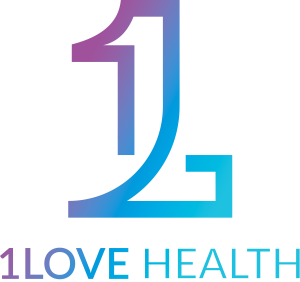8 Simple Steps to Brain Health
Key Takeaways:
-
Get quality sleep.
-
Include health fats.
-
Get some exercise.
-
Always learn new things.
-
Find new interests.
Brain function and cognitive health issues are quite common with unhealthy lifestyles. There are many contributors toward poor cognitive function or cognitive decline, luckily there are some simple fixes you can implement into your life to dramatically improve your memory and processing power.
1. Find New Hobbies

Learning new hobbies is a great and fun way to improve both memory and cognitive function. When learning anything, our brain produces neurons involved in forming new connections within the brain. This can have similar effects to physical exercise and even anti-depressants. Learning new hobbies such as music is great because it exercises your memory which can decrease the likelihood of memory loss as we age.
2. Sleep Is Extremely Important

Sleep is extremely important in promoting a healthy brain. Sleep serves the role of cleaning up brain toxins that contribute to effects such as brain fog and difficulty concentrating. Sleep is also vital for neuro plasticity, which helps form new connections when learning or experiencing something.
If you're not getting an adequate amount of sleep, you may experience negative side effects such as lack of energy, brain fog, difficulty focusing, poor mood, etc.
3. Cold Exposure
Cold exposure can cause a dramatic release of hormones within the brain. While the idea of cold exposure may be quite daunting, there can be up to a 500% increase in norepinephrine output which can help you to feel energized with increased focus. Cold exposure causes these levels to stay elevated for a long period of time after use, which allows cold exposure to essentially serve as a natural energy drink, while keeping the brain healthy.
4. Dietary Fat

Salmon
Tuna
Flaxseed
Chia seeds
Soybean Oil
Diet is extremely important in all aspects of health. Omega-3s help build more brain cells and nerve cells. This will allow for improved memory and abstract reasoning. Having too low levels of healthy fats within your diet can be severely negatively impact your health, leading to negative side effects such as brain fog and overall poor mental function.
5. Heat Exposure

58 minutes per week minimum
Split between 2-3 sessions
As hot as you can comfortably handle
Heat exposure via sauna use allows for increased blood circulation throughout the entire body. This can reduce high blood pressure and drive vital nutrients to the brain. Frequent sauna sessions have been associated with decreasing the rate of mental decline, reduction of Alzheimer's disease and dementia symptoms. Enhance blood flow from sauna usage can increase brain development and keep your brain healthy, along with the rest of your body. Science suggests a minimum of 58 minutes of sauna usage per week in order to achieve all health benefits.
6. Alcohol Is Poison

Alcohol plays a larger role is cognitive decline than most people would assume. Alcohol, even in small amounts interferes with the brains communication with organs, along with its basic methods of processing information. While many symptoms are acute with alcohol consumption, long term conditions can occur do to alcohol's ability to disrupt natural brain function. The effects can be seen with as little as 1-2 drinks per week.
7. Supplementation
B vitamins
L-theanine
Caffeine
Omega-3s
Curcumin
Supplementation can help complement a healthy diet in order to fully support brain health. The best way to get vitamins is certainly through food; however, there are some supplements that may help you feel your best.
B vitamins mainly play a role to maintain brain function when you're deficient in them, if you're not it's best to keep getting them through food sources.
L-theanine has actually been shown to help with acute mental function and performance. This is also present in green tea, alongside caffeine, which makes green tea a great energy source that also helps with cognitive function.
Omega-3s are very important to support brain health, but should be gotten through food groups. If you're unable to do so, supplementation of omega-3s may be a good idea.
Curcumin has been shown to support memory along with helping impaired brain function. A study by UCLA has shown it can improve not only memory, but mood as well.
8. Exercise Regularly

Consistent exercise is important in all pillars of health. Physical activity helps release endorphins in the brain making you feel great. Aerobic exercise has even been shown to boost the size of your hippocampus, which is the portion of the brain responsible for memory and learning.
For an optimal healthy lifestyle you should aim for 150 minutes per week of moderate intensity exercise or 75 minutes of vigorous intensity activity.
Exercise will overall help improve mental clarity and function, feeling stuck or overwhelmed? Go on a run, walk or do some weights in the gym. Consistent exercise can make a huge positive impact on your life.


